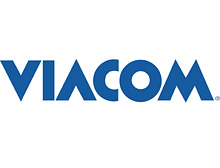 Last year, Viacom filed a lawsuit over $1bn against YouTube/Google. Viacom’s claim is that youTube illegally distributed to its users content owned by Viacom. The problem is that actually nobody knows what content is owned by whom. Even Viacom doesn’t know which content it actually owns.
Last year, Viacom filed a lawsuit over $1bn against YouTube/Google. Viacom’s claim is that youTube illegally distributed to its users content owned by Viacom. The problem is that actually nobody knows what content is owned by whom. Even Viacom doesn’t know which content it actually owns.
Here is an example of what I mean. Viacom ordered an independent film maker, Joanna Davidovich, to remove from YouTube a film she made and that they thought was owned by them. The problem was that this film actually wasn’t owned by Viacom, they contacted her in error. A Viacom executive got in touch with her later to explain what happened.
Joanna wraps it up as follows:
I was personally contacted by an executive at Viacom, who explained how my film got mixed into their system. Juxtaposer was in a film festival that was presented by Nicktoons, which is of course a Viacom company. They offered selections of the festival as downloadable content, and Juxtaposer was one of them. They just forgot that Viacom’s rights to those films were all nonexclusive. He personally assured me that Viacom is no longer making a claim to my film and YouTube should be sending me documents affirming that shortly.I don’t think this would have been over with nearly as fast if not for the publicity I got from your post. This could have been a nightmare, but it wasn’t. Count this one a success!
Effectively what that means is that nobody knows with 100% certainty who owns what content. Not even Viacom. Now, Mike Arrington says the copyright law should get changed. I disagree. What should get changed is not the law as such, but how the law is actually implemented in practice. What we need is a reference library with referencing technology attached to it, where every distributor of electronic content material can automatically reference check the content they are distributing. When a distributor is not doing so, and they end up distributing copyrighted material illegally, they could be deemed to have not complied with the law.
For example, you could easily translate the sound in videos to written text and create an index of that text. You could subsequently query that index with text you discover in your video/music/text/etc sharing site. Content owners could publicly claim their content in that reference library (in certain geographies and for certain distribution channels).
Having such a reference library would actually indirectly increase the value of the overall ecosystem, as it would help all creators of content to claim (and offer for distribution and license) their content.
I am not sure whether any content company would want that reference library. Probably too much work. And it would only indirectly generate revenues. It is so much easier to sue Google than to try to get the job done right in the first place.
Maybe Umair should have a word with them. Maybe they can be made to understand that this would actually increase the value of their business. Sounds like quite a long shot.
PS: See the little (R) sign next to the Vicom logo? Bad bad me for including it in this post!
![]()
![]() Subscribe in a Reader
Subscribe in a Reader ![]() Subscribe by Email
Subscribe by Email
